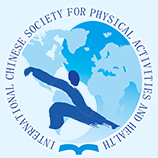Document Type
Abstract
Publication Date
2-2024
Abstract
Purpose: As science and technology advance, social civilization progresses, and individuals garner increased attention. Consequently, the focus on mental health has reached new heights. This paper delves into the current state of adolescent mental health and explores the positive impact of sports. The objective is to foster a correct understanding of the correlation between sports and the mental well-being of teenagers. Through this exploration, the aim is to leverage the inherent characteristics of physical education teaching materials in order to integrate heart and physical education, harness the unique role of sports in cultivating adolescent mental health, and elevate both the mental and physical well-being of teenagers. Methods: 60 students were randomly selected from Xi'an No.6 Middle School and 30 were in the experimental group and 30 in the control group for 8 weeks of sports intervention. The mental health level of adolescents in the sports control group before and after sports was assessed with the Symptoms Self-assessment Scale (SCL-90). The SCL-90 scale examined nine factors, including anxiety, affective disorders, interpersonal communication, compulsion, depression, hostility, stress, paranoia, and psychosis. The evaluation indicators of adolescents in the two groups before and after the experiment were statistically analyzed by T-test on SPSS 25.0 software. Results: After 8 weeks of sports, the SCL-90 test results in the control group did not change significantly, while those in the exercise group decreased. The experimental group was significantly lower than the control group in three factors of anxiety, depression, and psychosis, while the other factors showed little or no difference. Conclusion: The experiment confirmed that sports can effectively reduce the degree of anxiety, depression, and other negative emotions of teenagers. Appropriate sports greatly improve the mental health of teenagers and have a positive impact on promoting the mental health growth of teenagers. Engaging in sports contributes to maintaining a positive mental state, preserving physical strength and energy, and enhancing intellectual functions. This not only boosts athletes' attention, memory, reaction abilities, and thinking but also stimulates their imagination. Consequently, teenagers are encouraged to actively participate in sports to bolster their physical fitness and fortify their mental health.
DOI
https://doi.org/10.18122/ijpah.3.1.22.boisestate
Recommended Citation
Wu, Shaofei and Jiang, Xue
(2024)
"A78: Effect of Physical Activity on Adolescent Mental Health,"
International Journal of Physical Activity and Health: Vol. 3:
Iss.
1, Article 22.
DOI: https://doi.org/10.18122/ijpah.3.1.22.boisestate
Available at:
https://scholarworks.boisestate.edu/ijpah/vol3/iss1/22
Included in
Exercise Science Commons, Health and Physical Education Commons, Public Health Commons, Sports Studies Commons



